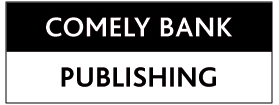1. The Quality Novel. This book is satisfying and well written, with a plot, characters and a sense of time and place that makes the reader feel part of the novel itself. Critics love it, it's entered for literary prizes.
2. The Bestseller. This book makes no claim to be a literary tour-de-force, but aims to please and entertain. It should be aimed at a specific market – which could be the air traveller, Womens' Institute groups, teenage fantasy, chick-lit, or erotic fiction. This book is out to make money.
3. The Cult Classic. This book could be anything. It might not be particularly well written or appeal to a mass market, but if successful it will have a 'following'. Books like these need to become famous for some other reason: perhaps they're made into a successful movie, or are referenced in a TV series, like The Third Policeman in Lost. But don't hold your breath waiting for these to do well.
In the old days of the Net Book Agreement, UK publishers could insist that books were sold at the price on the rear cover. It meant they could use the profits from successful books to subsidise up and coming authors, or even academic books. No longer.
Nowadays you have to be sure what your book is trying to do. Is it good enough to be a literary classic? Will it appeal to a specific mass market? Or is it just yet another cult novel? Because unless you're a very, very good writer, only a mass market book will interest a commercial publisher. As for the cult novel? Forget it. Self-publish, hope it attracts attention, and don't be too disappointed if it doesn't.








